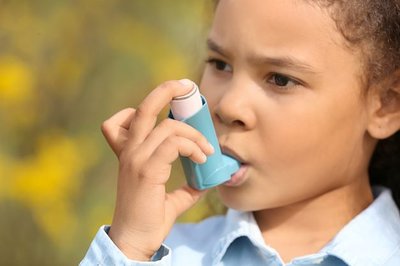Study Targets Improving Prehospital Asthma Treatment for Children
- Published October 2, 2022

The Charlotte, Houston, and Milwaukee Prehospital (CHaMP) node has a second clinical study, “Treating Respiratory Emergencies in Children (T-RECS) Feasibility Study,” working through regulatory requirements so that it can be funded and begin to initiate study procedures. CHaMP is the only node focused specifically on prehospital research within the Pediatric Emergency Care Applied Research Network (PECARN).
Below, the node shares the details of its initial pilot study that could lead the way to improved prehospital asthma treatment for children.
What is the T-RECS study?
T-RECS is a study of implementing a treatment bundle (including albuterol, ipratropium, and dexamethasone) to children with severe acute asthma symptoms who are being treated in the EMS system after a 911 call for difficulty breathing.
Why is T-RECS Necessary?
The TRECS study will help determine if treatments considered standard in the pediatric emergency department (albuterol, ipratropium, and dexamethasone) are effective when used together as a bundle in the prehospital setting. Asthma is the most common chronic illness in children and can be life-threatening. There has never been a prospective study on the treatment for severe asthma in the EMS setting.
“We do not know if the treatments we currently use in the hospital will be successful when they are implemented in the prehospital setting,” says Matt Hansen MD, MCR, associate professor of Emergency Medicine and Pediatrics and associate medical director, Oregon Health & Science University Pediatric Emergency Department, who is leading the study. “By implementing these treatments in the form of a bundle in the EMS setting, we hope to get the medications on board earlier, improve symptoms more rapidly, and improve patient outcomes.”
What will the T-RECS study help us learn?
T-RECS is a pilot study. Pilot studies are needed when doing a new type of research to make sure researchers can work through potential challenges on a smaller scale before starting a larger study.
“T-RECS will test our ability to successfully implement the bundle in children with severe asthma and collect the study outcomes, which include the NIH Patient-Reported Outcomes Measurement Information Systems (PROMIS) asthma impact scale that measures quality of life,” says Hansen.
When the study is completed, it will provide the necessary information to plan a larger study to fully test the effectiveness of the medications.
“Since this is a study of severe/life-threatening asthma, we will not have time to get consent before starting the treatment. We plan to have children enrolled under exception from informed consent following federal rules for emergency research.”
- A Career of Connection and Impact: Reflecting on Longstanding Service in EMSC February 24, 2026
- Results of First Comprehensive Assessment of Pediatric Capabilities of EMS and Fire-Rescue Agencies Published February 17, 2026
- New National Statement Sets Life-Saving Standards for Pediatric Readiness in Emergency Departments January 20, 2026
Sign up for news and updates straight to your inbox.